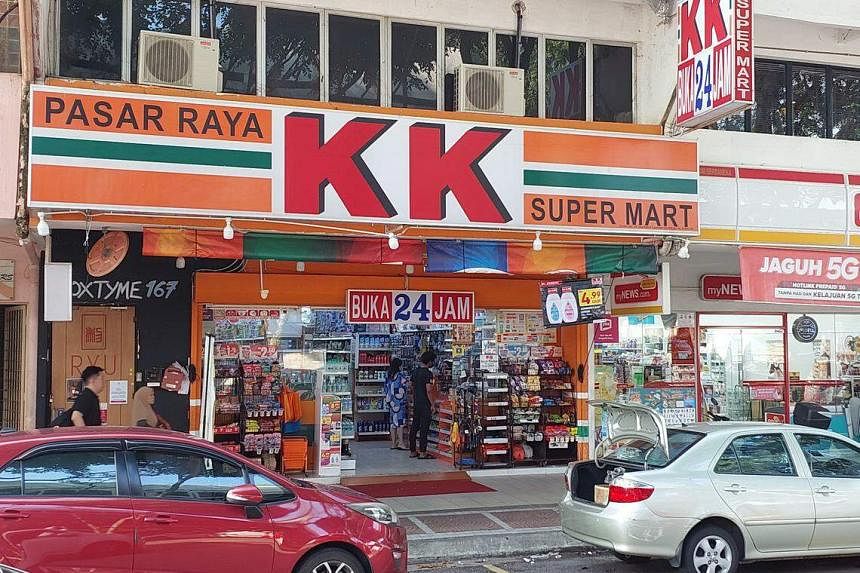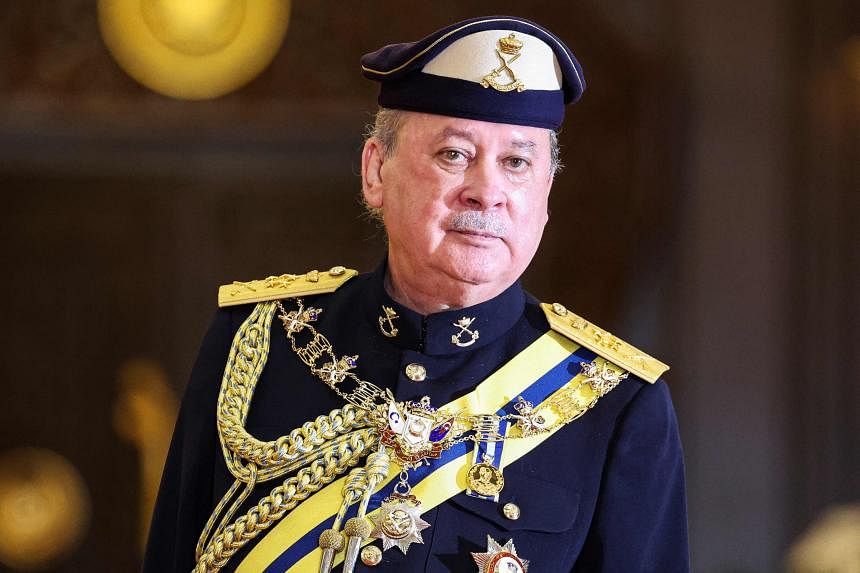KUALA LUMPUR - Malaysia’s monarchs have increasingly been stepping into the void in the last few years, with the most recent interventions on communal issues in the past month casting a spotlight on the Anwar Ibrahim government’s struggles to unify a divided country.
The King, Sultan Ibrahim Iskandar, has been at the forefront of the royal calls for unity. On April 9, he even summoned leaders from Umno and the Democratic Action Party – key members of the administration that nominally represent often conflicting Malay nationalist and secular interests, respectively – to draw a line on “Socksgate”, the controversy over 14 pairs of socks with the word “Allah” printed on them.
“I hope political leaders are not extreme in giving their views on religious and racial matters. Leaders should be bridges between our plural citizens,” Sultan Ibrahim said after the meeting, which included Umno deputy president Mohamad Hasan, DAP deputy secretary-general Liew Chin Tong and Umno Youth chief Akmal Saleh.
Dr Akmal has been the loudest politician calling for retribution against KK Super Mart despite the convenience store chain having apologised for the offending footwear, which found their way into a shipment of over 18,000 pairs of socks. Further allegations of insulting Islam have since cropped up involving shoes and prayer mats.
But analysts believe such interventions could set a dangerous precedent for Malaysian democracy, undermining the elected administration and elevating the acceptance of royal activism amid a climate of political uncertainty.
“The King is helping to restore calm and order as PM Anwar’s government appears to have been having trouble putting this issue to bed. The next time such an incident occurs, more people would look to the King,” S. Rajaratnam School of International Studies’ (RSIS) Malaysia programme coordinator Ariel Tan told The Straits Times.
“He has always been expected to be an influential player in the polity. But his proactive role in the handling of Socksgate has made this clearer and earlier than what most might have expected,” she added, referring to Sultan Ibrahim’s very public persona as a hands-on ruler of southern state Johor.
This comes on the back of a similar urging by Selangor’s Sultan Sharafuddin Salahuddin on April 5, telling political leaders to play their roles in uniting people of different backgrounds instead of “worsening the situation by raising issues that could cause division”.
Such calls by these constitutional monarchs – nine of Malaysia’s 13 states have hereditary Malay rulers who also rotate five-year terms as the federation’s Agong or King – have become increasingly commonplace in recent years, in parallel with their involvement in political affairs.
The powers of the rulers are limited to certain areas: They have some discretion in appointing chief ministers of their states, dispensing pardons, and in regard to Islam and Malay affairs. But their influence as political arbiters has grown since 2008, when Umno’s aura of invincibility began to crumble before it lost power for the first time a decade later.
Independent political analyst Adib Zalkapli believes the general trend of royal activism is “partly because of the failure of the democratically elected leaders to perform, forcing the monarchy to step up”.
“The socks case saw democratically elected leaders fail to de-escalate the situation or, worse, play a leading role in stirring communal tensions. So the King had to step in to play the role of the unifying figure,” he told ST.
In some cases, the royals were perhaps justified, such as when the then Agong, Sultan Abdullah Ahmad of Pahang, had to decide on a prime minister who commanded the majority in 2020 and 2021 amid multiple party defections by MPs.
The ruler had also declined a government request to declare a state of emergency during the Covid-19 pandemic in 2020, before acceding in the next year.
But both Sultan Abdullah and Sultan Ibrahim – who took over as Agong on Jan 31 – have, in their roles as king, also warned against a repeat of the toppling of governments due to defections, essentially handing Datuk Seri Anwar “royal protection” against a loss of majority.
“This is inevitable – that democratisation brings about a re-questioning of established authority. But this does not augur well for a civilian administration that is struggling to consolidate its legitimacy,” historian Eddin Khoo, founder-director of cultural organisation Pusaka, told ST.
Citing philosopher Antonio Gramsci, he likened the situation to “the old is dying and the new cannot be born”, and in that void is comfort for a primeval institution like the monarchy.
“In a way, the Agong is attempting to establish himself as ‘the fount of Malay interest’ by subverting a further Malay tendency towards the nationalist and religious right,” said Mr Khoo. “If he is seen to be able to cultivate reason in any situation, he will emerge as the natural arbiter in many issues and hence centralise the monarchy in matters of such dispute. The question then is: ‘What is the real future of civilian administration?’”
Critics point to a failure of the authorities to administer justice fairly.
For Socksgate, those deemed to have offended Islamic sensibilities have had business licences suspended, goods seized, and were charged in court. Two men have already been imprisoned for six months for making remarks deemed as insulting Islam following the controversy.
Meanwhile, vigilantes who had earlier physically intimidated the two jailed men have gone scot-free. Three KK Super Mart stores have also been targets of firebombs, with no word on whether any suspects have been identified.

This is happening amid ebbing support from the Malay-Muslim majority for the Anwar-led government.
Ms Tan, who is also RSIS deputy head of policy studies, notes how Dr Akmal has been treated with care by the authorities, with PM Anwar, in fact, feeling it necessary to point out that the Umno Youth chief had not been arrested but merely called in by police to facilitate investigations.
“Umno also appeared to be presented as the representatives of Muslims despite the recent decline in support among its Malay base,” she said.
Such populist tendencies bode ill for further reforms down the road. Looming large is the need to slash subsidies – which regularly take up over a fifth of the national budget – in a bid to contain government liabilities that have gone over RM1.5 trillion (S$426.5 billion), more than 80 per cent of the country’s domestic output.
Although policymakers aim to ensure Malaysia’s poorest still have access to targeted subsidies or cash transfers, the cuts will still have a knock-on effect on inflation, hurting Malaysians across the board at a time when the government’s approval ratings have dived below 50 per cent.
It is one thing for the rulers to step in on issues of social cohesion and religion in the face of public unrest, but will they, and should they, in strictly policy matters?
Mr Adib believes that royals “playing an active role in policy formulation” would represent “a new normal” in a “trend that is set to continue for some time”.
“This would bring into question the credibility and authority of the executive government.”


